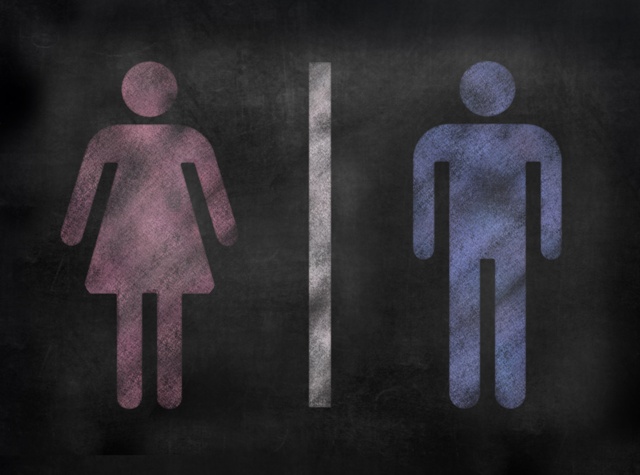Gender Neutral Language
The Transitional Constitution of the Republic of South Sudan (2011) guarantees equality and equal protection of the law for all persons without discrimination. All laws must conform to the constitution and hence guarantee non-discrimination and equality for both men and women. One strategy that has been employed by South Sudanese law makers to conform to the constitutional requirements of equality is to incorporate Gender Neutral Language into laws and in many instances where the word man appears; the word woman or the appropriate pronoun is also added.
An example of this can be seen from the legal provisions on Adultery in South Sudan. Under the 2003 Penal Code, adultery was defined only as extra-marital sex with and by a married woman. Due to the obvious discriminatory nature of the provisions, the new Penal Code of 2008 repealed the sections in the 2003 Act and now defines adultery as extra-marital sex by or with either a married man or woman. Penalties for the offence include a fine, imprisonment or both fine and imprisonment. Adultery can also be tried by chiefs under customary courts who apply the customs and traditions of the aggrieved party and can punish the offenders by imposing a fine, imprisonment or both fine and imprisonment. Both statutory and customary law courts may order the offender to make compensation to the aggrieved party, or alternatively, the court may give part of the fine to the aggrieved party as compensation. Compensation takes the form of payment of money or cows.
Incorporating gender neutral language into statutory law to grant women formal equality does not always guarantee women substantive equality or justice. By employing gender neutral language as a strategy for equality the false implication is that women are treated badly in law because they are differentiated from men and hence to end discrimination, differentiation should be removed. Since men continue to be retained as the standard by which women are judged, then to insist on equality by employing gender neutral language is to insist on being treated like men. In addition, incorporation of gender neutral language is a poor strategy to get rid of gender inequality as language does not exist in a vacuum; the body of meanings attached to language are socially constructed hence within language sexual dichotomies exists. Thus incorporating gender neutral language is only a superficial gloss on the problem as sexual differences are not so easily overridden and new words can readily take up old meanings.

Source: thepublicdiscourse.com
Customs and Traditions Inspire Law
Laws are inspired, influenced and informed by social and cultural practices. Some of the sources of laws under the Constitution are the customs and traditions of the people of South Sudan. Thus to understand the objectives and rationale behind the law on adultery, it is to the culture of the people we must look. South Sudanese communities and hence cultures are by no means homogenous, but as all of them are patriarchal they share some similarities on the roles and status of women. Under patriarchy the emphasis is on maintaining the male lineage and hence guaranteeing immortality and continued participation even after death. Women’s reproductive capacities are central and their sexuality must be directed towards continuing the male lineage. For these reasons sexual offences are seen as those which interfere with the procreative process. Such wrongs are thought to be only committed on women as they are the ones who are violated through penetration. Nonetheless, women often bear a much higher moral responsibility and pay a much higher moral price for such offences. Against this background, adultery by a married woman is considered as an affront to a man’s masculinity and a grave interference with the procreative process that has, in the past resulted, in violent retaliation and clashes between an aggrieved husband’s lineage and the male ‘seducer’s’ lineage.
It is for the reasons of the need to perpetuate the male lineage and the fear that clan men may pursue violence that adultery is incorporated as an offence under the 2008 Penal Code. From this it is clear that the whole rationale and objective behind the inclusion of adultery as a statutory offence is in reality hinged on continued control and appropriation of women’s reproductive capacities. The provisions are undoubtedly sexist. Any concern with public morals under the law on adultery is really only a concern with women’s morality and an attempt to increase surveillance on women hence the provisions are only really intended to bear on women; facts which are masked by the incorporation of gender neutral language to make the offence apply to both married men and women.
Law in Practice
Beyond law being what is stated in the statute books, it is also what it is in practice and what people believe it to be. While the law, through the use of gender neutral wording, seeks to place both men and women on an equal footing with regards to the offence of adultery, legal agents such as lawyers, prosecutors and the police may consciously or unconsciously interpret the law against their own social and cultural understanding of gender relations and in patriarchal ways. By way of example, it would seem much more likely for a married woman to be charged with adultery by her husband and be arrested by the police than her husband. In society, not only is the continuation of the male lineage considered an overriding goal and men are allowed to marry more than one wife under polygamy, but in-fact sexual exploits including infidelity are seen as biologically given masculine traits. The same attitude by women is abhorred and considered uncharacteristic of the good woman whose modesty and virginity before and chastity within marriage are her virtues. Hence in practice, adultery will more likely than not be interpreted only as an extra-marital affair with or by a married woman resulting in the arrest of disproportionate numbers of women whilst married men who have extra-marital affairs with unmarried girls or women go free.
Other gendered implications of the law can be seen if we consider that in a society where women are socialised into tolerating male infidelity and hinging their worth on their status of wife, mother and homemaker - it is much harder to envision many aggrieved women coming out to charge their husbands for adultery. Additionally, the majority of the legal agents are male, thus women getting a sympathetic ear to their grievances will be a rare occurrence.

Illustration by C R Sasikumar via indianexpress.com
Gendered Punishments
In the area of punishments, the provisions on adultery are also likely to have gendered implications and a disproportionate impact on women. Men and women are located in unequal hierarchical positions in the cultural, economic and social structuring of South Sudanese communities. Women are accorded a lower and subordinated position and considered inferior and have less access to and control over resources. Since men have greater access to and control over resources they would be more likely to escape imprisonment by paying up the fine if for example a court opts to fine parties found guilty of an offence. Women on the other hand may end up having to serve prison terms because of their inability to furnish the fine. Hence, the gender neutral language incorporated into the legal provisions on adultery masks the discrimination against women under such circumstances and the injustice incumbent in treating unequal’s equally.
Complexities of a Plural Legal System
Access to formal court structures is limited in South Sudan. Women’s access is further hampered by limited control over resources and lack of information and illiteracy. Under a plural legal system, such as in South Sudan, where customary law and courts exist alongside formal courts, cases often start off under customary courts. Customary courts apply customary law and are usually comprised of the chief and elders who are usually men. Adultery is one of the offences that can be handled in the customary courts. Under the Penal Code, adultery can be committed by both married men and women. However, under customary law adultery can only be committed by a married woman and as over 90 % of the civil and criminal cases are handled in traditional courts, disproportionate numbers of women will be incarcerated. Even in cases where a woman gains access to formal court structures it’s unlikely that she would be able to get much justice as the majority of judges and legal personnel are male and have been socialised in societies where gender stereotypes are upheld.
Social Stigma of Adultery
Adultery is a social problem, one that is as a result of many different reasons and unhappiness within marriage. Law is not the answer to every social problem that exists in society. Legal provisions on adultery- although held out as applicable to both men and women- mask some of the harms suffered by women in a patriarchal society.
Let’s take an example of adultery as grounds for divorce. Women do not have the same amount of free-will regarding marriage as men in South Sudan. Hence many women find themselves in forced or arranged marriages irrespective of their own personal preferences or feelings. Women trapped in unhappy marriages have limited grounds for divorce under customary law and are trapped in a complex web of relationships cemented by the payment of dowry. Men on the other hand have wider grounds for divorce and discretion on whether to consent to a wife’s request for divorce. Adultery is not one of the grounds for which women can seek a divorce under customary law, but men may use the wife’s adultery as one of the grounds for divorce. Some women have resorted to eloping with other men and committing adultery in a bid to be granted divorce by their husbands.
During proceedings on adultery, as women are seen to bear a higher moral responsibility than their male counterparts, evidence of the woman’s character can more readily be used by both the aggrieved husband and alleged lover. The aggrieved husband can bring up her character showing her to be a loose woman for his grounds for divorce, while on the other hand an alleged lover can bring up the woman’s character to show loose morals to avoid paying compensation to the aggrieved husband. On the other hand a woman seeking to bring up her husband’s reputation as loose or a seducer before the court would not gain much sympathy for supporting a prosecution against him nor as grounds for divorce. In this way the law judges women using biased standards.
Even though I consider the negative implications of the law on adultery on women; this is not to say that the law benefits men in South Sudan as a homogenous category or that it disadvantages women as a homogenous category. There are important differences to consider in the way the law works for women, brought about by education and class, and between categories of women such as rural women and urban women. An educated urban woman with a source of income at her disposal may have greater access to courts. She may easily pursue divorce in statutory courts with the assistance of a lawyer and even be granted one in contrast to her rural counterpart with no access or control over resources. Even within categories of men, important differences can be brought about by class or social status. A prominent rich man may get away with being charged and arrested for adultery compared to a poor man.
Gendered Law Implications
Gender neutral language used in the law to achieve equality between the sexes masks discrimination against women, ignores or fails to comprehend the harms suffered by women and may mask the state’s lack of commitment to implement genuine changes for women. What gender justice demands is not treating women and men equally but looking beyond the surface to see how gender works in law and the gendered implications of the law and addressing these accordingly.
Considering the negative implications of the law on adultery on women, adultery as an offence is best scraped off the law books as employing the law to solve every social problem only increases state control over people’s lives. Adultery provisions are in contravention of Constitutional requirements of Equality and South Sudan’s International Human Rights obligations under the International Covenant on Civil and Political Rights which require it to reform existing laws that contravene its treaty obligations on ensuring non-discrimination, equality before the law and access to justice.
Feminism and Law
Despite its inconsistencies, law still remains an important tool for feminists in the emancipation of women. However, feminists in South Sudan must not only engage with the law as a tool for struggle, but must make the law a site for struggle. They should continually scrutinise laws for hidden gender implications and actively engage in the formulation of laws and enactment of laws that address the gaps. Increased numbers of women in the bench, law enforcement and legal profession is needed to impact interpretation of the law in more gender-balanced ways. This may take a long time to realise but current members of the bench, legal professionals as well as law enforcement agencies need to be targeted with training and awareness programs on women’s rights and gendered implications of the law so they are better informed and more sensitive whilst dealing with cases.

Source: http://ucsdguardian.org
In a legal pluralist system such as the one in South Sudan, customary law plays a central role in the day to day lives of the majority of the people. It shapes their realities, their sense of identity and is what is viewed as legitimate. Women’s rights issues enunciated in liberal constitutional frameworks unfortunately often meet resistance on the grounds that they are foreign, elitist, individualistic and anti-tradition. What feminists must realise is that; to build legitimacy they must engage with customary law.
Customary law is not static. The customary law that is now rigidly adhered to by traditional courts - to the disadvantage of women- has itself been impacted by colonisation and years of civil strife. It is also arguably, as what was witnessed by much of the rest of Africa during colonization, a selective presentation of claims of African male elites/elders and a selective understanding of those claims by male colonial officials during colonialism. Feminists ought to engage actively at the community level in ascertaining customary law, contesting constructions of customary law and providing alternative interpretations.
Women groups are still young and growing in South Sudan but they should be careful to avoid having an urban bias and should look for ways to work more closely with women in the communities who should be accorded the opportunity to shape the needs, priorities and strategies taking into account their own lived realities in their different contexts. Undoubtedly public awareness and social mobilisation need funding; thus feminist groups have a lot to gain by networking with international women’s movements and the international community to share information, learn best practice and obtain funding support. While usually it is only a few participants who can attend international forums, every effort needs to be made to pass down the information and skills acquired to women at the community level and to diversify participation at these international forums. Ultimately genuine changes can only come from within. The international community still has a role to play in holding Governments accountable to their human rights obligations. Donor emphasis on democracy, good governance and respect for the rule of law are crucial in order for rights to be able to be enforced and hold the potential to be a tool for social transformation. The Law does have inconsistencies, as shown by the law on adultery- it masks gender discrimination and yet, women cannot give up on the law and state - because the state will not give up on women.
